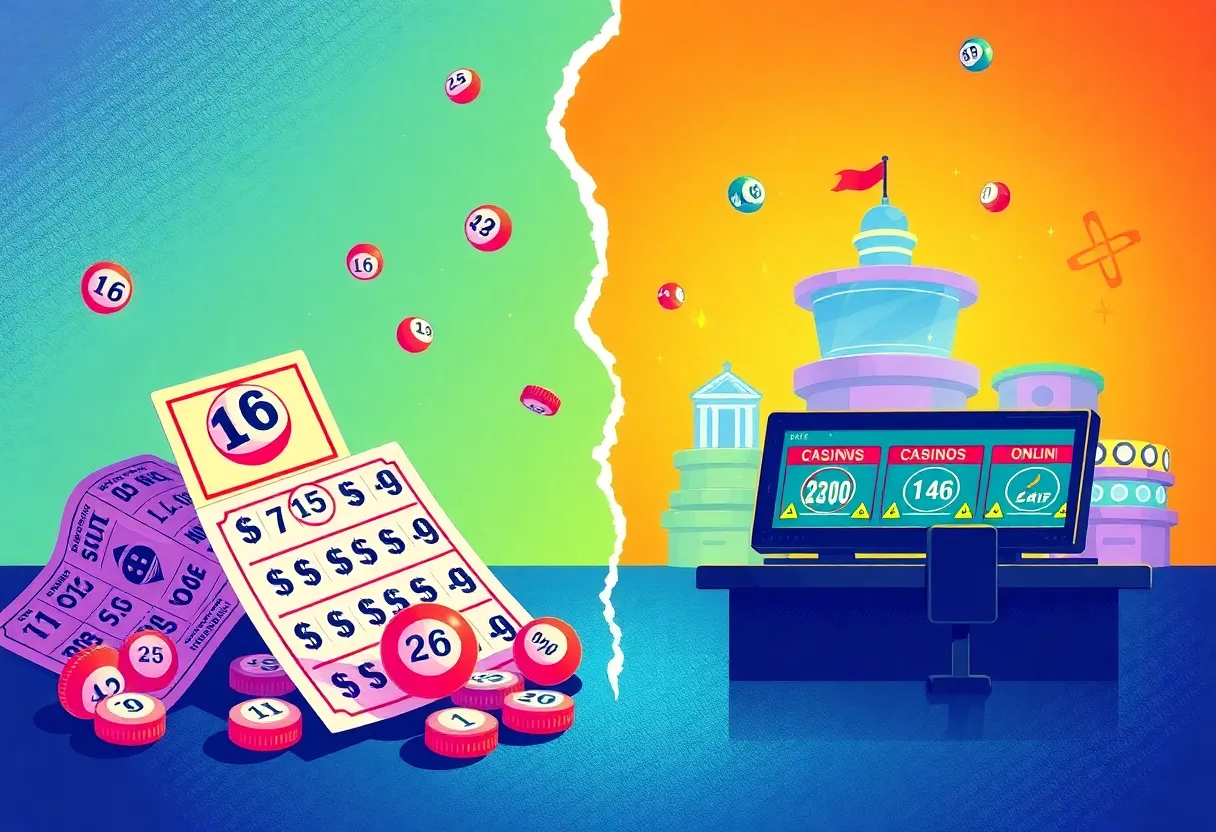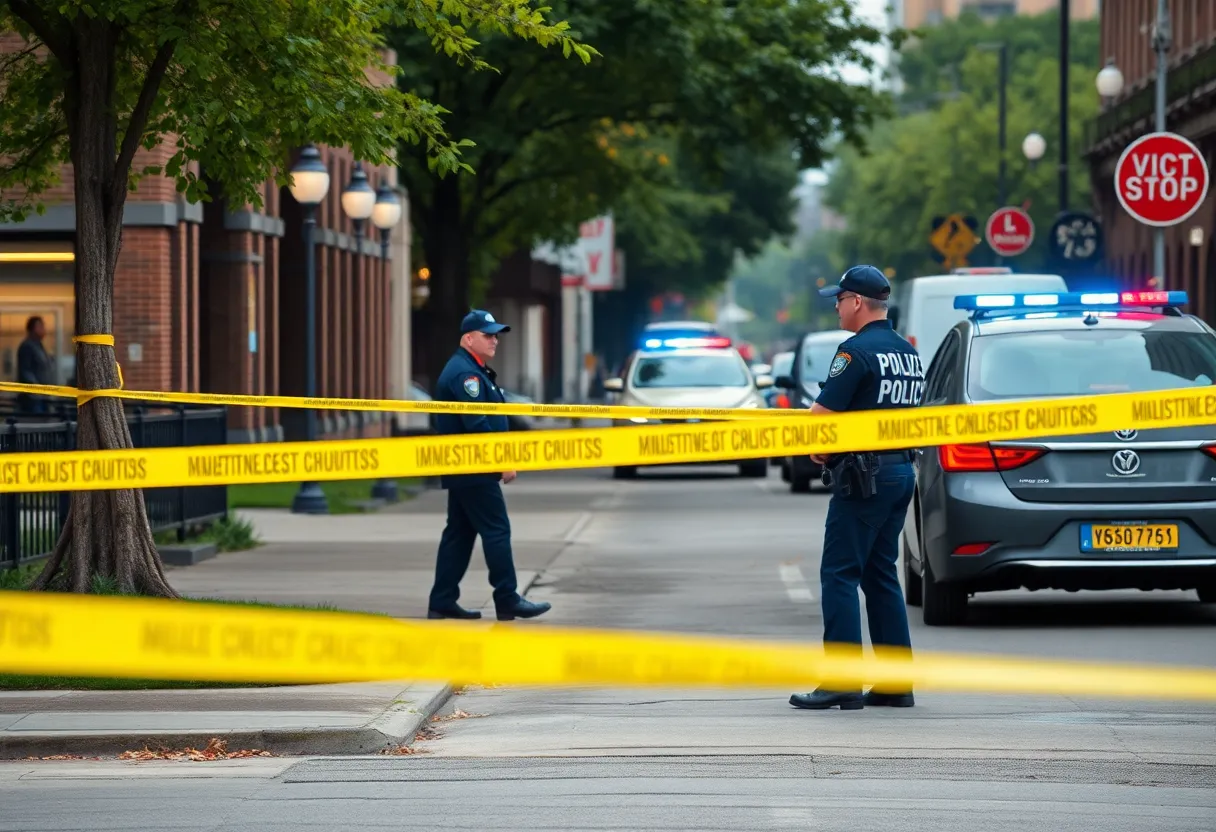News Summary
In March 2025, Massachusetts lottery sales fell to $462.4 million, reflecting an 8.8% decrease from the previous year. This decline is attributed to increased competition from casinos and online gaming. While Keno and Lucky for Life saw sales growth, scratch ticket sales dropped significantly. Rhode Island also reported a decrease in lottery revenue, raising concerns about funding for community programs. The ongoing competition from legalized gaming options continues to pressure traditional lottery sales, necessitating a reevaluation of strategies in both states.
Massachusetts lottery sales for March 2025 saw a significant decline, totaling $462.4 million, a drop of $44.8 million or 8.8% compared to March 2024. This downturn is part of a broader trend affecting both Massachusetts and Rhode Island lotteries as competition from casinos and online gaming expands in the region.
In March 2025, the only two lottery products that reported sales increases were Keno and Lucky for Life, with both showing positive growth for the second consecutive month. In stark contrast, sales of scratch tickets in Massachusetts decreased by $19.5 million or 6%. This reflects a troubling pattern contributing to the overall decline in lottery revenue.
The Massachusetts Lottery also reported an increase in prize payouts, paying out $11 million more in prizes in March 2025 compared to the same month in 2024. This increase in prize distribution comes at a time when the lottery is grappling with lower revenues, as evidenced by earlier reports indicating a 6% decline in sales noted in October 2024, coupled with a record high prize payout percentage over the past five years.
In a similar vein, the Rhode Island Lottery experienced an 8.2% decrease in sales in October 2024 compared to the previous year. Key segments such as sports betting and scratch tickets were heavily impacted, highlighting a systematic decline in ticket sales as gaming options continue to grow.
Both states are observing a trend of shrinking lottery revenues, which is essential for funding local community aid programs. This decline in lottery sales is concerning as it may result in diminished financial support for cities and towns that rely on these funds for essential community services.
Data from a report by the Federal Reserve Bank of Boston reveals that Rhode Island retains nearly 62% of its lottery sales revenue, the highest rate in New England. Furthermore, Rhode Island is ranked second in the region and third nationally for player spending on lottery games. These statistics indicate a robust engagement with lottery products, even amid declining sales.
Adding to the complexity of the situation is the finding that lower-income individuals typically allocate a larger portion of their income to purchasing lottery tickets. This demographic’s spending patterns could result in increased vulnerability to market fluctuations caused by the expanding presence of casinos and online betting options.
As legalized gaming options such as casinos with table games, slot machines, and sports betting proliferate across Massachusetts and Rhode Island, these forms of gambling are increasingly seen as direct competitors to traditional lottery systems. The growing availability of these alternatives is reshaping the landscape of gambling and placing additional pressure on lottery sales, as gamblers opt for venues that offer a broader array of gambling choices.
In conclusion, both the Massachusetts and Rhode Island lotteries are facing significant challenges due to increased competition from the gaming and gambling sectors. The resulting decreased sales and shrinking profits pose a risk to the essential community aid funding these lotteries provide. As the landscape of gaming continues to evolve, stakeholders in both states may need to reassess their strategies in response to these changing dynamics to sustain revenue streams vital for public funding.
Deeper Dive: News & Info About This Topic
- WBSM: Massachusetts and Rhode Island Lottery Sales Decline
- What’s Up Newp: Rhode Island Lottery Spending More, Earning Less
- WWLP: Family First Trust in Rhode Island Claims $1M Lottery Ticket
- Turn to 10: Mega Millions Changes in Effect
- Rhode Island Current: Impact of Sports Betting on Rhode Island

Author: STAFF HERE PROVIDENCE WRITER
The PROVIDENCE STAFF WRITER represents the experienced team at HEREProvidence.com, your go-to source for actionable local news and information in Providence, Providence County, and beyond. Specializing in "news you can use," we cover essential topics like product reviews for personal and business needs, local business directories, politics, real estate trends, neighborhood insights, and state news affecting the area—with deep expertise drawn from years of dedicated reporting and strong community input, including local press releases and business updates. We deliver top reporting on high-value events such as WaterFire, Rhode Island International Film Festival, and Rhode Island Comic Con. Our coverage extends to key organizations like the Greater Providence Chamber of Commerce and Providence Warwick Convention & Visitors Bureau, plus leading businesses in finance and manufacturing that power the local economy such as Citizens Financial Group and Textron. As part of the broader HERE network, we provide comprehensive, credible insights into Rhode Island's dynamic landscape.





